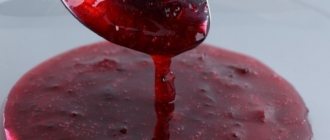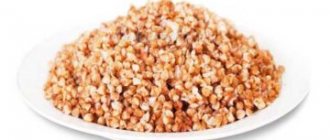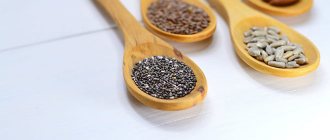Breastfeeding mothers often receive conflicting advice from doctors and school counselors about whether drinking alcohol can negatively affect their baby. It used to be generally accepted that alcohol could be beneficial during breastfeeding, and many breastfeeding mothers were advised by doctors to drink alcohol (usually in the form of wine or beer) to relieve emotional stress, increase lactation and improve infant sleep. This may be why from 30 to 80% of nursing mothers in the world drink alcohol in varying doses during breastfeeding. The highest percentage of alcohol consumption (83% of breastfeeding mothers) was observed in Norway in the 1990s. In the 2000s, the number of drinking breastfeeding mothers in Norway decreased to 79%. Moreover, in Norway, every fourth drinking nursing mother drinks more than 5 standard doses (1 dose or “drink” - 10-14 g of alcohol in any type of alcohol) of alcohol per day. By comparison, in the United States, only 35% of mothers drink alcohol while breastfeeding.
To drink or not to drink alcohol while breastfeeding?
The impact of drinking alcohol on a baby while breastfeeding is directly related to the amount of alcohol the mother consumed, her health status, body weight, and the time elapsed between drinking and the start of breastfeeding. Although representatives of some breastfeeding associations (La Leche League International) currently believe that controlled drinking of alcohol can be safe for infants fed milk containing small amounts of alcohol, most government and professional medical societies (USA, UK, Australia) believe The safest thing is for the mother to completely abstain from drinking alcohol during breastfeeding, or recommends starting feeding only after the time for processing doses of alcohol has expired at the rate of 1 dose of alcohol - 2 hours. More conservative medical communities (Canada) point out the need to completely express and dispose of breast milk that was produced after drinking alcohol. It has been shown that this procedure does not reduce the concentration of alcohol in breast milk: as long as there is alcohol in the mother’s blood, it will also be observed in the milk, although in a significantly lower concentration (5-6% of the concentration in the mother’s blood). Alcohol enters milk within 30-60 minutes after the start of its intake.
Recent medical studies have shown that alcohol cannot be considered a safe substance in any dose, regardless of the type of alcohol and the age of the person drinking it. Based on this, the widespread belief that one dose of alcohol taken earlier than 2 hours before breastfeeding will not have a harmful effect on the baby is wrong. It is possible that the propaganda of the limited safety of alcohol for nursing mothers and infants is lobbied by alcohol manufacturers, since there is evidence that children of mothers who drank alcohol during pregnancy and breastfeeding are more likely to suffer from alcohol dependence in childhood, adolescence and adulthood.
Harm from alcohol consumed by a nursing mother
- Contrary to myths about the positive effect of alcohol on milk production, medical studies show that taking even one dose of alcohol (12 g of alcohol) leads to a 9% decrease in milk production in the next 2 hours. This effect is explained by the inhibitory effect of alcohol on the hormone oxystocin, which ensures the movement of milk through the milk ducts.
- Alcohol consumption affects the overall duration of lactation. Breastfeeding mothers who consumed at least 2 standard drinks of alcohol daily were 2 times more likely to interrupt breastfeeding than women who consumed less alcohol.
- Alcohol changes the mother's reflexes and her reactions to dangerous situations. A mother who drinks alcohol sleeps in the same bed as her baby is directly linked to an increased likelihood of sudden infant death syndrome.
- Infants reduce breast milk intake by 20% when feeding within the first 4 hours of maternal drinking.
- Alcohol changes the normal structure of sleep in infants: sleep becomes fragmented (the baby wakes up more often) and shorter (by 25%), and the REM phase of sleep, responsible for processing and assimilation of information received by the child, decreases in its structure.
- Children of mothers who drink alcohol while breastfeeding are more likely to experience delayed psychomotor development and slower body growth.
Preparing for the feast
To protect the body of the mother and child from possible consequences after drinking alcoholic beverages, you need to take into account the recommendations of experienced mothers and properly prepare for the celebration:
- before sitting down at the table, you need to feed the baby, and after drinking a drink, be sure to skip one feeding;
- for the next process of feeding the baby, prepare breast milk or a bottle with artificial formula, and if there is a lactation flow of milk after drinking alcohol, be sure to express it;
- be sure to record the time of drinking alcohol in order to calculate the time until the next “safe” feeding”;
- you need to choose one type of alcohol and drink it in minimal doses;
- It is recommended to choose non-alcoholic beer or wine - first read the composition on the packaging in order to avoid purchasing a product with chemicals;
- in the body of thin women, alcohol is retained longer, and therefore the period of its elimination increases;
- After drinking, take activated charcoal, which enhances the body’s work to eliminate alcohol breakdown products.
Traditional craftsmen recommend eating a piece of butter or drinking a cup of strongly brewed black/green tea before the feast. Such methods will allow you to quickly neutralize alcohol in the body. It is prohibited to snack on alcoholic drinks and fatty foods during breastfeeding, so as not to worsen the functioning of the baby’s digestive system.
Quitting alcohol during lactation is not difficult. This is the only way to guarantee the safety of the child’s health, preventing the occurrence of serious consequences. Be prudent and do not abuse bad habits when breastfeeding.
How quickly is alcohol removed from the body of a nursing mother?
On average, it takes 2 hours to process and remove each standard dose of alcohol from the body. When drinking 2 doses of alcohol, the time doubles, when drinking 3 doses - three times - up to 6 hours. Time is counted from the start of drinking alcohol.
A more accurate time for removing alcohol from the body, based on body weight, amount drunk and time, can be found in the table below:
| Body weight, kg | Number of doses of alcohol (10-14g alcohol per dose) / hours:minutes | ||
| 1 | 2 | 3 | |
| 55 | 1:55 | 3:51 | 5:46 |
| 61 | 1:48 | 3:38 | 5:27 |
| 66 | 1:45 | 3:30 | 5:15 |
| 70 | 1:42 | 3:23 | 5:05 |
| 75 | 1:38 | 3:16 | 4:55 |
| 79 | 1:35 | 3:10 | 5:45 |
| 86 | 1:31 | 3:02 | 4:32 |
Recommendations for mothers who do not suffer from alcohol dependence
- Breastfeeding after accidental single consumption of alcohol in an amount of up to 2 standard doses will not harm the baby’s health. One-time and random, not regular!
- If you plan to take 1-2 drinks of alcohol, take alcohol after breastfeeding and wait until the next feeding in accordance with the alcohol withdrawal time table. Express and discard milk produced while drinking alcohol. Expressing does not reduce the alcohol concentration in milk - it only decreases over time.
- Do not replace breast milk with formula after accidental drinking: a single dose of milk with a small amount of alcohol is safer for the baby than drinking formula.
- If you plan to drink alcohol, express milk into bottles in advance to use it instead of breastfeeding after drinking alcohol. If you are not sure that you can control the dose of alcohol, prepare milk in reserve.
- If you did not eat while drinking alcohol and did not drink it with non-alcoholic drinks, be sure to express and dispose of the milk produced during this time.
- After drinking alcohol, the amount of milk in the mammary glands may be less than usual. Milk production will return to normal when the body gets rid of alcohol.
- After feeding milk with alcohol, the baby's sleep will change: he will fall asleep faster, but his sleep will be more restless, he will wake up more often and sleep less than usual.
- You should not sleep in the same bed with your child after taking even small doses of alcohol. Have someone sober watch your baby while you sleep.
- Beer does not increase your milk supply - that's a myth!
Please consult your doctor or lactation consultant before drinking alcohol while breastfeeding!
Alcohol and breastfeeding
Before you find out whether a nursing mother can drink alcohol, you should know that it usually interferes with the lactation process - under its influence, a woman produces less milk, because the reflex of its formation is impaired.
Alcohol quickly penetrates into the food of babies - according to the principle of simple diffusion, it easily passes through all membranes and biological barriers. When a baby drinks such milk, he will be sleepy, lethargic and will not want to suckle it.
Mothers who drink large amounts of alcohol on a regular basis should not breastfeed at all because their babies may suffer from delayed psychomotor development and growth.
According to the lactation risk category, the alcohol contained in breast milk is L3. This means that it is considered moderately safe. Thanks to extensive research on modified milk, it is well known that it is better for a baby to drink milk with a little alcohol than artificial formula.
Does alcohol pass into breast milk?
Alcohol passes into milk and has the same effect on the baby as it does on the mother. A baby's liver is not yet mature enough to handle such drinks, so it may be risky for him. Therefore, it is better to avoid drinking wine and beer without waiting for it to dissipate.
First of all, you need to pause during the first months of a child’s life, when exclusive breastfeeding is recommended. At this time, the breast is the basis of the baby's nutrition, and he often requires it. The general belief that alcohol promotes milk production is not true (nursing mothers are not recommended to drink alcohol (even drinks like Karmi, which also contain it).
What percentage passes into breast milk?
According to a Swedish study, only 2% of alcohol passes into breast milk, according to other sources – 10%. At the same time, it still disrupts the “oxytocin reflex”; the baby receives less milk after the mother drinks alcohol. It has been calculated that after a glass of wine (250 ml = approximately 32.5 g of alcohol) for 30 minutes, its volume in the blood is 0.59%.
After a glass of wine, 1-2 small cocktails, 0.3 liters of beer, you should not breastfeed for about 2-3 hours.
How long does it take for it to pass into milk?
When drinking alcohol, it appears in the blood and milk after an hour and a half, depending on whether it was taken with or without food. The peak level is maintained for at least two hours. The more you drink, the longer it will last.
The American Academy of Pediatrics states that drinking should be casual and kept to a minimum (0.5 grams of pure alcohol per kilogram of body weight), so for a person who weighs 60 kg, this would be:
- approximately 250 ml wine
- 1 glass of beer.
If you drink too many strong drinks, then when asked how long after drinking alcohol you can feed your baby, doctors answer - no less than two hours later. A long break significantly reduces the amount of alcohol in the milk. In Russia, doses should be smaller because American drinks are weaker.
How long does it take for alcohol to be eliminated?
Alcohol during pregnancy manifests itself as a teratogenic agent, that is, it damages the fetus and causes FAS syndrome (irreversible physical and mental changes in the child).
When a baby is born, the close symbiosis is interrupted, so alcohol does not immediately appear in the baby’s blood. Thanks to this, from time to time a nursing mother can afford some strong drinks.
It must be remembered that they pass into milk, so they should always be drunk immediately after feeding or a few hours before the next one so that they can be metabolized.
The average time for elimination is from 0.1 to 0.2 g/kg per hour. The level of alcohol in milk increases at the same rate as its amount in the blood, and decreases at the same time.
It takes approximately 3 hours to expel one unit of alcohol from the body. According to the American Academy of Pediatrics (APP), mothers are allowed to drink a small amount of alcohol. When asked how long after you can breastfeed your baby if you have been drinking alcohol, doctors recommend waiting two hours.
Alcohol elimination table
The speed of withdrawal of alcohol-containing drinks is proportional to the woman’s height and weight and the volume taken. The average speed is given in the table.
By "drink" we mean:
- a large glass of beer;
- glass of wine;
- a glass of vodka.
If a nursing mother drank alcohol, then how long after you can feed the baby is the answer in this table.
Call a breastfeeding specialist to your home
At the Group’s children’s medical centers, we know that the most convenient place for breastfeeding consultations is your own cozy home:
- A specialist will come to you at a convenient time. You don't have to go to the clinic and wait in line. Consultations can also be held directly in the maternity hospital (if visits are permissible) or in a medical center.
- A familiar home environment makes consultation easier for both mother and child.
- At home, the consultant will be able to devote more time to both the child and the parents.
- The consultant is always a phone call away: day and night (at night you can call the contact center or write to the consultant, the consultant will answer as soon as possible), on weekdays and on weekends.
- Support from a specialist is not one-time consultations, but accompaniment: the consultant will visit the mother and baby again, if necessary, after 2-4 weeks to check how feeding is going and the baby’s weight gain.
In addition to calling a breastfeeding specialist to your home, you can call doctors of the main specialties: pediatrician, surgeon, allergist, urologist, pulmonologist, hematologist, dermatologist, ophthalmologist, ENT doctor, orthopedist, gastroenterologist and osteopath. You can also take tests, perform physiotherapy and massage at home. Infant swimming consultants can advise you at home and conduct a master class.
Find out about the special offer “Comprehensive examination at home”: the convenience of this program is that you can choose from a list of pediatric doctors exactly those specialists that your child needs and an individual set of medical services with a 20% discount!
What does Komarovsky think about drinking alcohol while breastfeeding?
Pediatric doctor Komarovsky says that alcohol during breastfeeding has different effects on the child. So, the pediatrician believes, a nursing woman can drink very little beer. And if you consume high-quality drinks in minimal quantities, you can get some benefits in the form of vitamins contained in barley malt and brewer's yeast.
Naturally, in addition to vitamins, foamy drinks contain various preservatives, which, in turn, will not bring any positive results to the body of the young mother or her child. However, if a young woman still cannot resist the temptation to drink a glass of beer, Komarovsky advises choosing a drink in a glass bottle.
And although the pediatrician is against categorical prohibitions on alcohol consumption, he is deeply convinced that strong alcoholic drinks such as vodka, whiskey or cognac can have irreversible consequences on the child’s health. Check out the video where Evgeny Komarovsky shares valuable information on breastfeeding, and also answers frequently asked questions from his “school” students.
Advantages of calling Virilis Group specialists to your home
- Travel to any area of the city and region without restrictions.
- No insurance, registration or citizenship is required to receive medical care.
- Providing assistance to children of any age.
- Experience in responsible treatment of children in St. Petersburg since 1991.
- 6 own children's medical centers with 650 specialists in 49 specialties.
- Possibility of diagnostics and continuation of treatment in our clinics.
- Coordination with other doctors of the VIRILIS Group of Companies clinics: we are a single team, and not individual doctors from a “mobile” clinic.
- 24/7 contact center.
- Issuance of official medical certificates and documents.
- Possibility of purchasing a package of a comprehensive medical program for a child, including the “Emergency Care” and “Comprehensive Examination at Home” packages.
- Special medical programs for newborns and infants.











